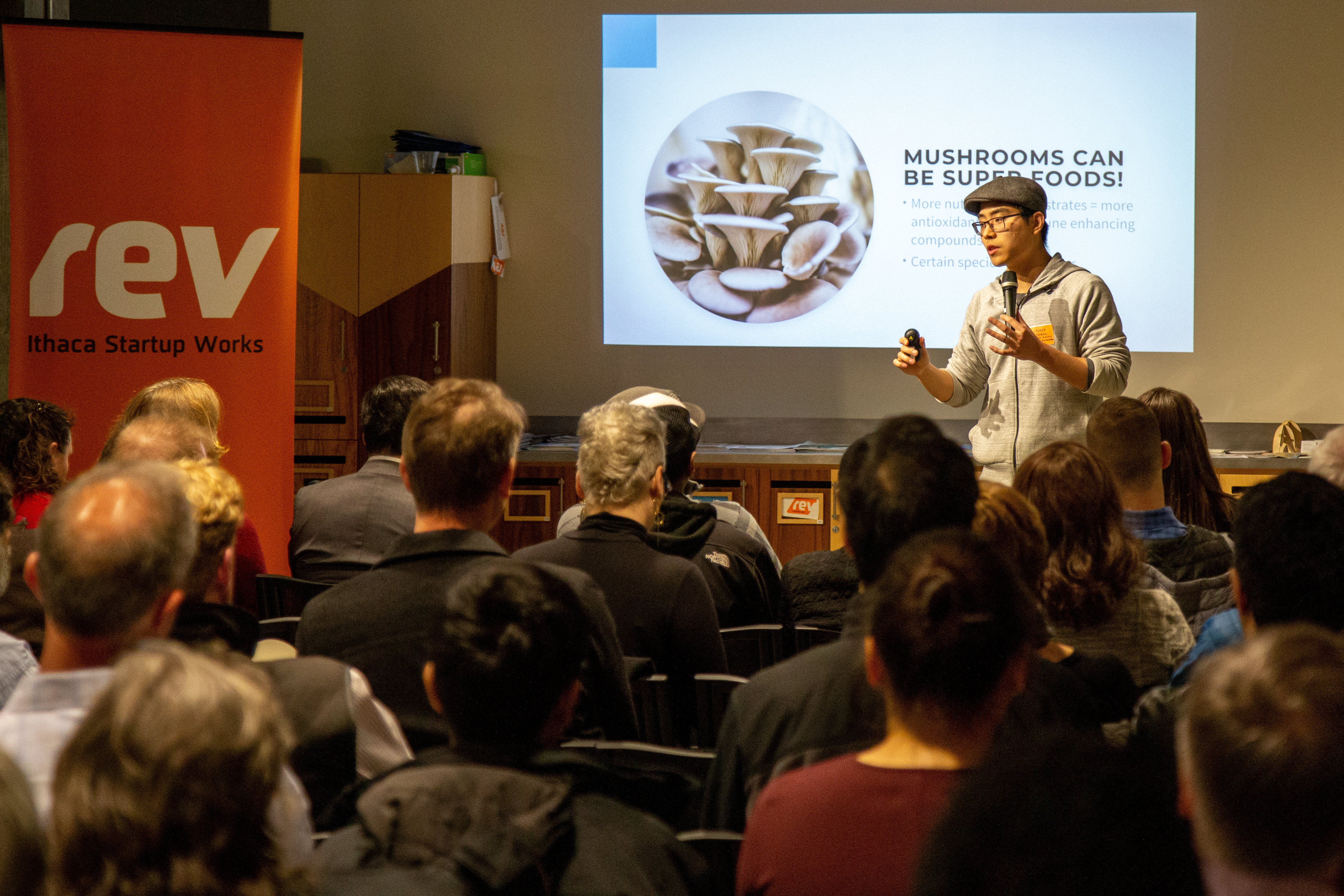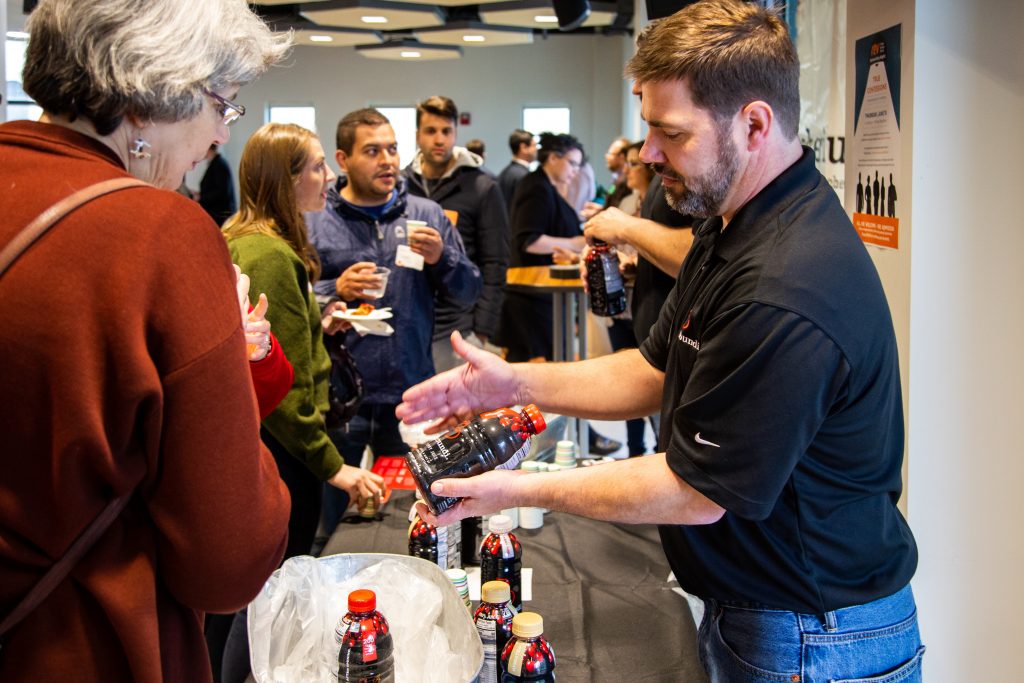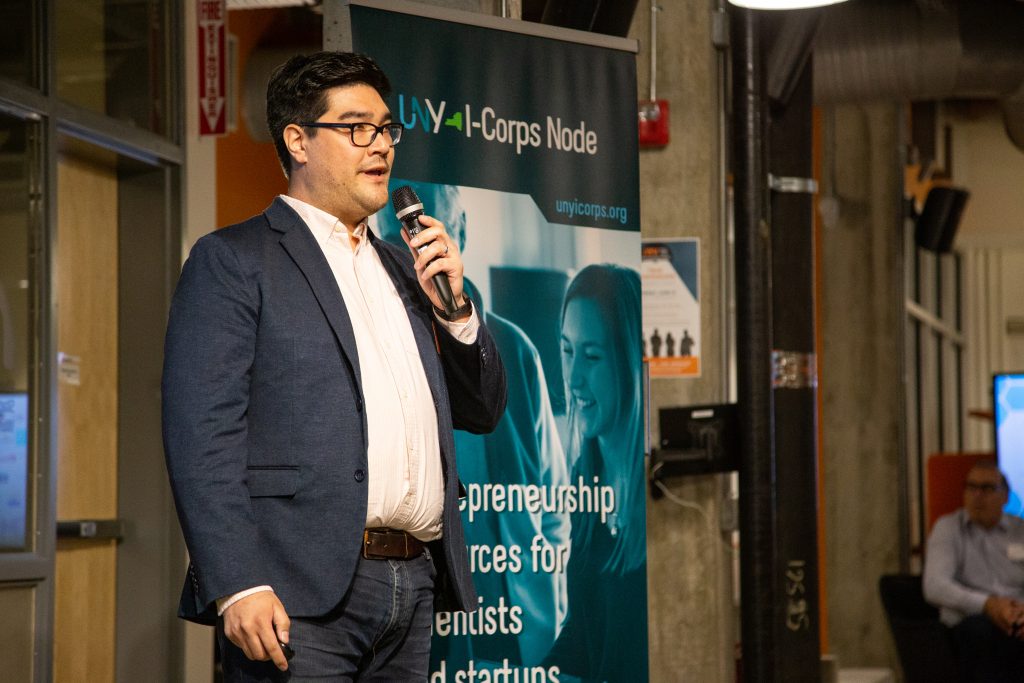
May Networking Night: New York is Food and Ag
By Casey Verderosa
Out-of-staters may first think of New York City when they call New York to mind but many in attendance at Rev’s May networking night, titled Food and Agriculture Innovation, knew that we’re residing in a dominant food state. “We are in the top ten in production of 30 commodities here in New York,” said Catharine Young, executive director of the New York Center of Excellence for Food and Agriculture at Cornell AgriTech.
To showcase the many food startups within the region, the evening’s menu featured fare produced by several local companies. “There are so many people tonight representing that energy we see around food and agriculture,” Young said. Her work at the Center of Excellence connecting food and agriculture entrepreneurs with resources they need has led her to predict a bright future for the industries in New York.

Networking night attendees heard presentations from three startups that are giving the state an edge in food and ag.
Leep Foods is an AgTech company working at the forefront of mycology. While nutrient-dense mushrooms are popular overseas, Americans have historically relied upon the comparatively less nutritious button and portobello mushrooms. One reason, according to COO and co-founder George Zheng, is that the industry is incredibly labor intensive. Leep Foods is speeding up the process through its rapid automated mushroom production method.
The business also has its sights set on addressing the environmental impact of meat overconsumption. Chefs describe mushrooms as having a meaty flavor and texture, so the company aims to combine its mushrooms together with meat in such a way that its Leeping Blended Burger tastes, feels, and looks like the real thing.
Capro-X is a sustainable biotech company that treats acid whey, a waste material from the production of Greek yogurt, and turns it into bio-oil. Not only can the waste product be reused, but Greek yogurt companies will no longer have to transport 50 truckloads of acid whey per day to various farms around the state to be used in animal feed, as some have been doing.

The bio-oil can be used to make specialty chemicals for use in the flavor and fragrance industries and CEO Juan Guzman aspires to develop biofuel from the oil in the future. The company is installing a pilot system at New York-based Byrne Dairy this summer, which will be its first scale-up from the lab and will enable Capro-X to start making sales of its bio-oil.
Hunter Adams ’15, M.S. ’17, a PhD candidate at Cornell, has developed a device called Monarch that can be used to generate targeted measurements of temperature, humidity, and wetness for vintners. In places like the Finger Lakes, where weather conditions can vary even within a single vineyard, Monarchs enable vintners to determine when and where to spray fungicide, rather than using blanket spraying. Monarchs are equipped with sensors, GPS, and radio.
Adams originally envisioned a much different use for his device: as miniature satellites launched into space. “I would not have been able to make that change in application if not for Cornell, the Commercialization Fellows program, and Rev,” he said.
Join us for Rev’s June 13 networking night: True Confessions of Entrepreneurs-in-Residence.
